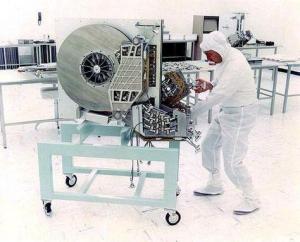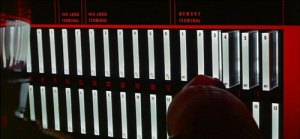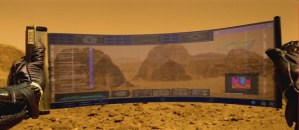See here the very first demo of an alpha version:
Hope to launch a Beta release in 2011.
Posted by nmarcel on September 24, 2010
See here the very first demo of an alpha version:
Hope to launch a Beta release in 2011.
Posted in Software, ThinkComposer | Tagged: Instrumind, ThinkComposer | Leave a Comment »
Posted by nmarcel on March 2, 2010
As you may already know, Chile suffered the second biggest earthquake of its history (world’s 5th to 8th, depending on source/criteria) plus a big tsunami. It happen on 3:34 am (local time) on saturday February 27th across the central zone, between 5th and 9th regions, having it worst consequences on 7th and 8th regions, with deepest damage on the coast side.
I live in Santiago, where damage was not as severe as on these zones near the center of the tectonic movement. Personally, I have the experience of the 1985 earthquake and this new one was, by far, more poweful and disastrous. My apartment is on a 19th floor, so the movement was oscillating, intense and fast because the flexible nature (reinforced concrete) of the “anti-sismic” building. Despite things almost “flay away”, such as my big TV or the microwave oven, there was little damage (consider that not a single window glass was broken). Most of it were fissures across some wall decoratives.
Thanks to God, I was fortunate. My family is safe, plus our material possessions.
This is the opposite for thousands of families of the most affected areas. Many of them have life loss, missing relatives plus the almost total loss of homes and possessions.
I feel very sad for my fellow countrymen. The effort of emergency assistance is very hard, and the reconstruction will take years. Plus, their shock mental state for sure will generate depression and other psychological consequences.
Right now I feel the aftershocks. The alert state is constant.
Posted in Contingency | Tagged: earthquake | Leave a Comment »
Posted by nmarcel on February 4, 2010
Maybe a basis for a Hollywood movie script:
After reading many (a lot) of diverse and amazing futuristic/sci-fi theories, I can imagine my “recipe for immortality”…
– A person is composed by his Body, Mind and Soul (immortal essence which has no proof of real existence, so ignore it if youre agnostic or something alike).
– Mind is the set of electric existing states and ongoing flows that our brain mantains active in its neurons.
– Soul: Suppose that it is implemented via an alter-dimensional set of particles (non detectable in the standard/Einstenian world, but existing at, let’ say, quantum-alike “fuzzy-spectrum” (you know, that level where crazy things happens)).
– Soul is connected to mind from that “fuzzy-spectrum” and we learned to redirect it.
– Time travel is not possible, we cannot change the past, but… maybe we can read it!
– We have super scanners, which can detect the presence/state of any particle or point in the space-time at any given coordinate (x+y+z+t).
– We have super computing power (at Technological-Singularity level) to process enourmous amount of data.
– Genetic engineering and nanotechnoly have evolved so far that it is possible to make physical perfect copies, at molecular scale, of any life form.
– Select a person who is just previous to die (turn-off his brain, thus lossing its neural state/flows).
– Make a new body (rejuvenated and even improved) to support continuity of the same person via this new chassis.
-Read the state/flow of each neuron of the person. Plus read the Soul assignation from fuzzy-spectrum.
– Then dead happens.
-Reproduce the readed neuron states/flows in the new body. Re-assign the Soul in the fuzzy-spectrum to the new neuron states/flows in the new body.
-Voilá! Full resurrection achieved.
– If you don’t wait until dead, then this could be used also for making clones of a person (not just the body, but also the mind).
– If soul can be “assigned” to only one mind or simply soul-assignation not happens, then we could have persons with mind, but without soul!.
– If past-time reading is not possible, then only we could back to life (or copy) persons subjected to the scanning process.
– If the universe will collapse someday… then you’ve got only an extended life, not immortality.
Further reading…
Posted in Entertainment, futurism, sci-fi, Society | Tagged: immortality, resurrection, singularity, theory | Leave a Comment »
Posted by nmarcel on November 17, 2009
Yesterday, I presented the first Alpha version of my product to some friends and ex-coworkers/employers, so valuable opinions about product potential, startup experiences and “first impression” feedback arose.
At the current early state, the product contains some core -unpolished- features such as…
Let’s see a screenshot (click to expand)…
Consider that the sample diagram exposed is just to show the visual capabilities of the software. So it has no restrictions nor follows a methodology, mapping rules or modeling technique.
Posted in Product, Software, ThinkComposer | Tagged: alpha version, Instrumind, ThinkComposer | Leave a Comment »
Posted by nmarcel on October 1, 2009
Company: Instrumind. This is the commercial platform for my creation.
Product: ThinkComposer. It is -or will be, when finished- a diagram based tool for organize thoughts, allowing analysis, storing and sharing of the underlying knowledge. It is intended to be an intermediate between visual thinking tools (such as Concept Mapping and Mind Mapping) and more specialized diagramming tools (like UML designers).
Click to expand the next screenshot…
I’m working hard to bring it to life and make a better conceptualization in describing the product. I hope to leverage the first version in 2011, more than a year from now, considering all the techniques to learn, problems to analyze and solve, the code to write and test, plus the website creation.
Posted in Announces, Software, ThinkComposer | Tagged: Instrumind, prototype, ThinkComposer | 3 Comments »
Posted by nmarcel on September 28, 2009
Why a man does certain things in his life and no others? Because circumstances of life moved him? like the torrent of a river carrying tree leafs to the sea. Or because he make decisions?
Sometime ago, late-2007/early-2008 to be more specific, the sensation of being carried by the torrent invaded me… feeling that I was swiming well but toward the direction my river was going, which really wasn’t my path. I was working on that professional speciality I studied and I ever liked so much (software development), but I wasn’t *making* what I wanted to. Imagine a musician dreaming about symphonies, but -by those circumstances of life- making jingles for toothpaste or cornflakes.
Then I noticed some tips, cues or ideas that started to changed my way of thinking:
– After read a newspaper article about some guy living his “sabbatical year” (traveling Europe, India, China and other exotic places), I wondered about “what if I could take a Sabbatical Year???” …where to go? ..what to do? Answer: Do whatever you want and never can because time or money. And what is that thing always has motivated me? Answer: CREATE things, in particular implemented as software. Since I saw for the first time the “Lotus 1-2-3” on an XT, I got inspired by the infinite possibilities computing has.
– Investigating a little, discovered the world of the Micro ISVs. And learned about many companies, products, celebrities and experiences about creating software with such little (or much) resources as only one developer or a few.
– Having already reaching some financial stability and after making some preliminary calculations, I determined that I would have time to make something of that MicroISV scale.
– Remembered when years ago I intended to do some things (maybe “stages” in the live of a developer?)…
– When working on my (at the time) job, trying to analyze a problem and designing its solution, I needed to express these ideas in a graphical way and started making shapes and lines on a paper. Then when the drawing reached some complexity I thought… hey! It’s time to stop this hand, pencil and paper thing and use software and its advantages (you know… undo/redo, saving, sharing, etc…). Then…
In other words… I needed to draw some diagrams without being forced to follow some methodology with its predefined symbology. I needed FREEDOM. So I went to look for other kinds of software…
Conclusion:
No one software I’ve investigated gives me the balance between freedom, information management and visual representation that I really want. So… I will make my own!
Posted in Announces, Software, ThinkComposer | Tagged: Instrumind, ThinkComposer | Leave a Comment »
Posted by nmarcel on June 1, 2009
When driving a car or flying an airplane there is some risk of accident. An accident with variable level of damage, from material losses thru minor or major injuries and death. Depending on multiple factors, the risk of accidents can be estimated from statistical data: A drunken man driving an old Cadillac has more risk than a commercial jet pilot. For any study group of cases there are more or less probabilities of disaster to occur over certain time. For example, let’s say in the world a fatal car accident occurs every 0.5 seconds, but a fatal aviation accident occurs every 6 months, a fatal merchant navy accident every year and so on. The risk is never zero for any human activity, industry, machine or system.
That danger of risk can also be considered about the way governments along history have solved conflicts or threats. Many times a diplomatic or pacific solution can be found, but some others no. Most of time terrorist attacks could be stopped, but some of those eventually will have success. If we are concerned about a mad wanting to kill us with a gun, then we should be concerned also about killing ourselves with one accident of our own thousand guns. That is the type of risk that the current status of nuclear weapons have over mankind.
The next Google Techtalk, presented by professor Martin Hellman, is the cause of this post and a voice of “hey! wake up, see and do something” about the subject.
Posted in Science, Society | Tagged: concern, nuclear weapons, Society | Leave a Comment »
Posted by nmarcel on May 25, 2009
The last months I’ve been going to the movies and found very good entertainment and excellent visual effects. When talking about plots their quality has been in accordance with their origin: Novel based, comic based or tv-series based in most of the cases. Let’s see the cases…
Knowing: Alex Proyas, again, accomplished my expectations… mistery and fantasy together with very thrilling moments and good music (that Beethoven’s 7th Symphony 2nd Movement was the best classical music used on a film since Vide Cor Meum in Hannibal). Stars: 7.5 of 10.
Angels & Demons: I didin’t read the book, so don’t have the “book vs film” problem. It was very entertaining and “educative” about Vatican, history and art things. Stars: 7 of 10.
Star Trek and Wolverine: Both were good action flicks. Stars: 7 of 10.
Watchmen: So and so…. interesting universe, but they killed the (for me) only good character: Rorschach. Stars: 5.5 of 10.
Posted in Entertainment | Tagged: 2009, Film | Leave a Comment »
Posted by nmarcel on March 12, 2009
I pretend to buy a new PC in the next couple of months for the simple reason that I’m not “feeling” my current one (a P4 at 3.2 GHz with 1.5 GB RAM) fast enough. Applications growth with every new version and also websites, consider that a software developer like me uses many medium-to-big applications (IDE, DB, web server, tools for diagramming UML and generate code, automated tests, graphic design, etc.), so more processing power is required and more disk accesses are performed, either for loading/saving files or caching/virtualizing memory pages.
In a way similar to networks, information flow is as fast as the slowest of its components: The Hard Disk, which is a mechanical device, therefore performing at speeds with many orders of magnitude slower than an electronic one. And these hard disks are still around us because the need for space, starting from application files, through huge media files (videos/movies, music and photos and their collections) or data files in workstations.

Primitive Hard Disk
The mechanical nature of hard disks makes them more vulnerable to physical shocks than chips. Also them consume a good amout of electricity for disk rotating and arm-header movements. In comparison, from my personal experiences, I have seen just one RAM failure, but like five times more disk crashes.
I think now is time to change the typical architecture of the PC, which until now uses these memory categories…
The new architecture should not have the secondary storage outside the PC only for backup purposes or alike. This is not an unfeasible option considering…

Sci-fi RAM (HAL 9000)
I would definitely prefer a 50GB RAM PC with no disk at all than today’s 2GB RAM with 500GB (or even TB) HD that are common. I dream with Excel or Visual Studio loading and working instantly upon my clicks.
Posted in Technology | Tagged: complain | Leave a Comment »
Posted by nmarcel on March 4, 2009
I’m a software developer and spend most of my time either analyzing problems or designing/programming solutions. Either when my job is relaxed or under pressure (to solve a production contingency) I really appreciate silence and a good calm place to gain good concentration. I can understand problems deeper and cleaner, can get inspired on designing solutions and can code with less bugs. In this context I feel very disturbed when a ring or a vibraquake like interrupts my pace, either from my own phone or -mainly- from these of my coworkers. Then the conversation starts and my concentration or inspiration are vanished.
I think maybe just 10% percent of phone calls are of relevant subjects, the rest is trivial, able to be delayed or so important that it cannot be discussed by phone (better a meeting or an e-mail).
Also, every day technology on phones (cell) improves making them also most expensive. In my case I don’t want to have a camera, a 1GB hard disk on it to store music nor a touchscreen.
I like to use a big monitor to do my work. It gives me the flexibility to work on many topics on the same screen without lose context and be distracted with moving/resizing of windows. So I feel uncomfortable with these little screens and also with the little keyboard.
My dream of mobile device is that “flex-tin” of the movie Red Planet used by the astronauts (I would store the mine over my chest and attached with an articulated arm).

Red Planet Mobile Computer
I understand phones are a real need for many people, but for me are an annoying part of modern life. So, my alternative is E-Mail the good old communication medium: fast, silent and a better way to express ideas (it gives time to think, re-think and correct).
Posted in Technology | Tagged: dislike, mobile, phones | 2 Comments »